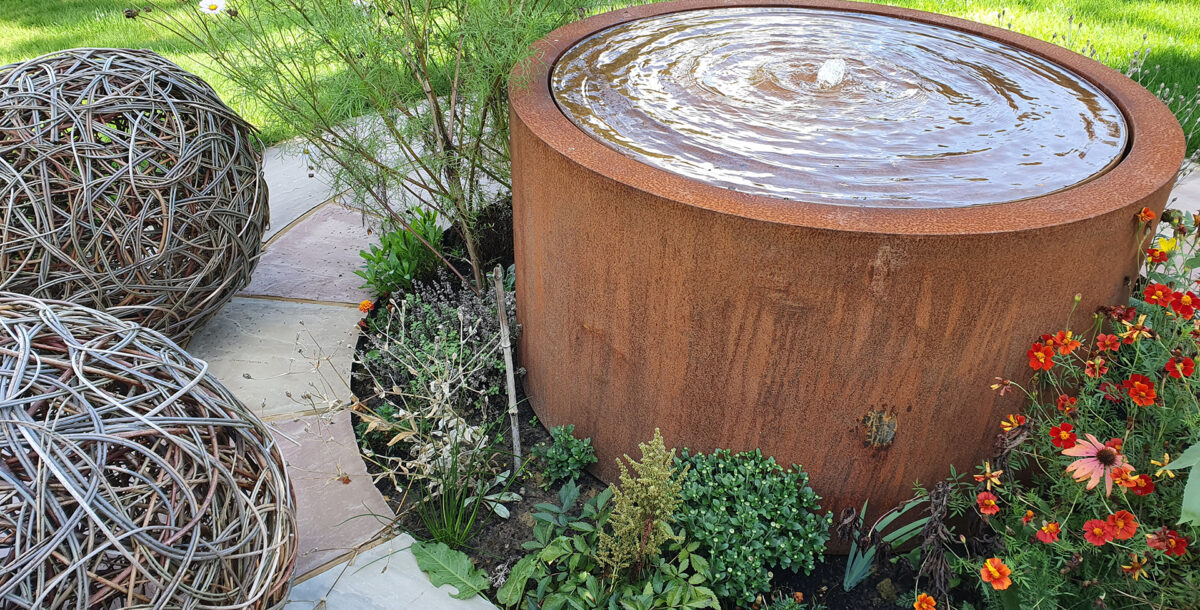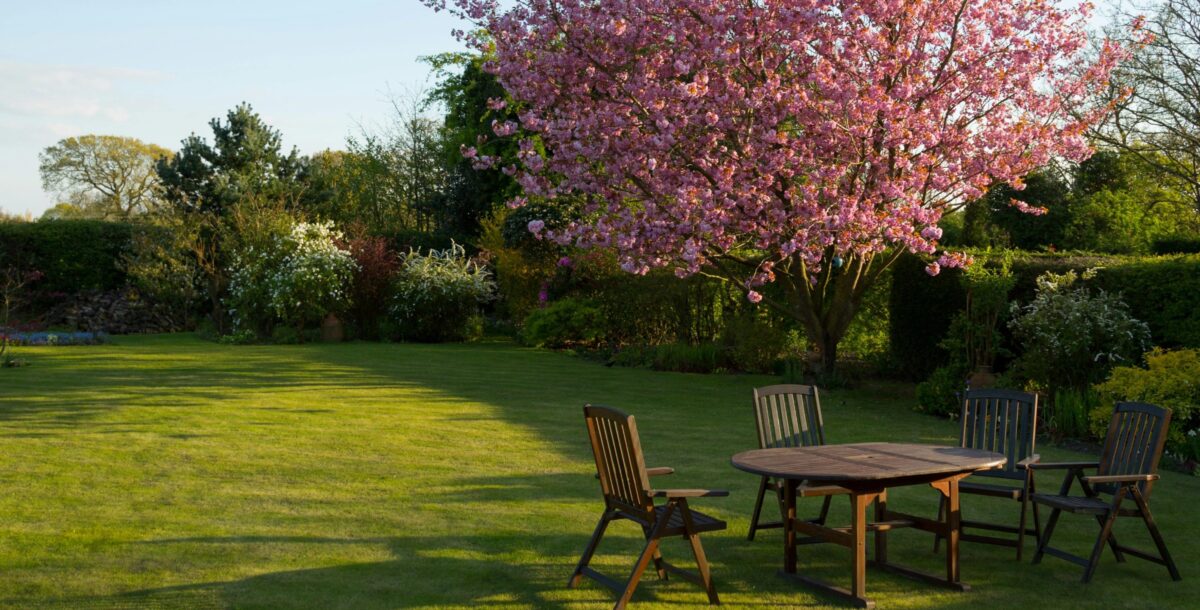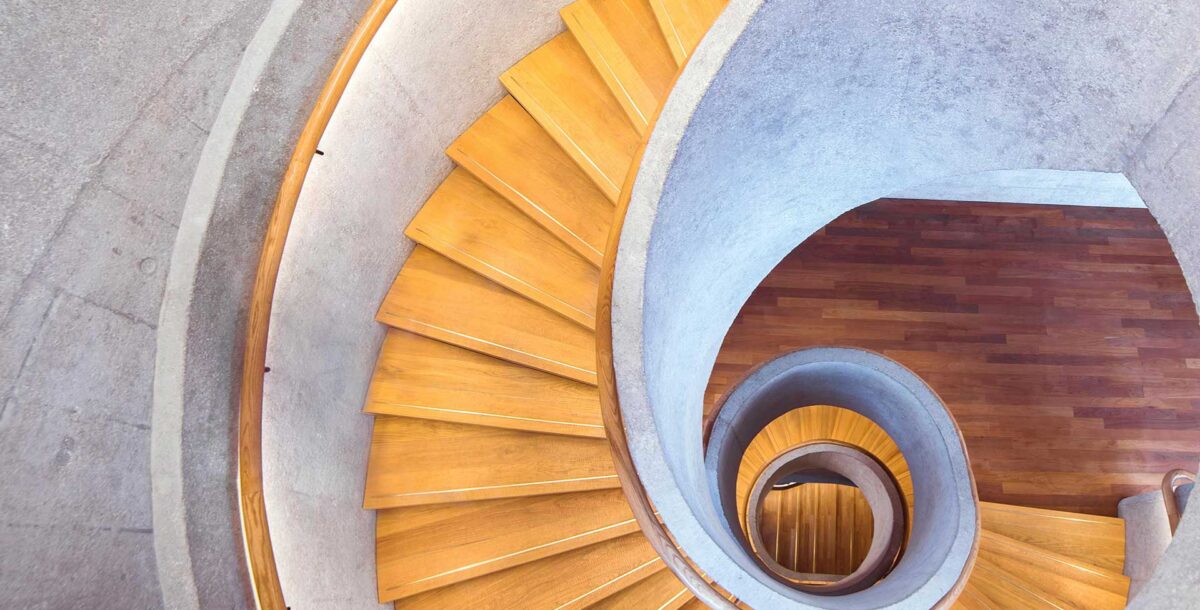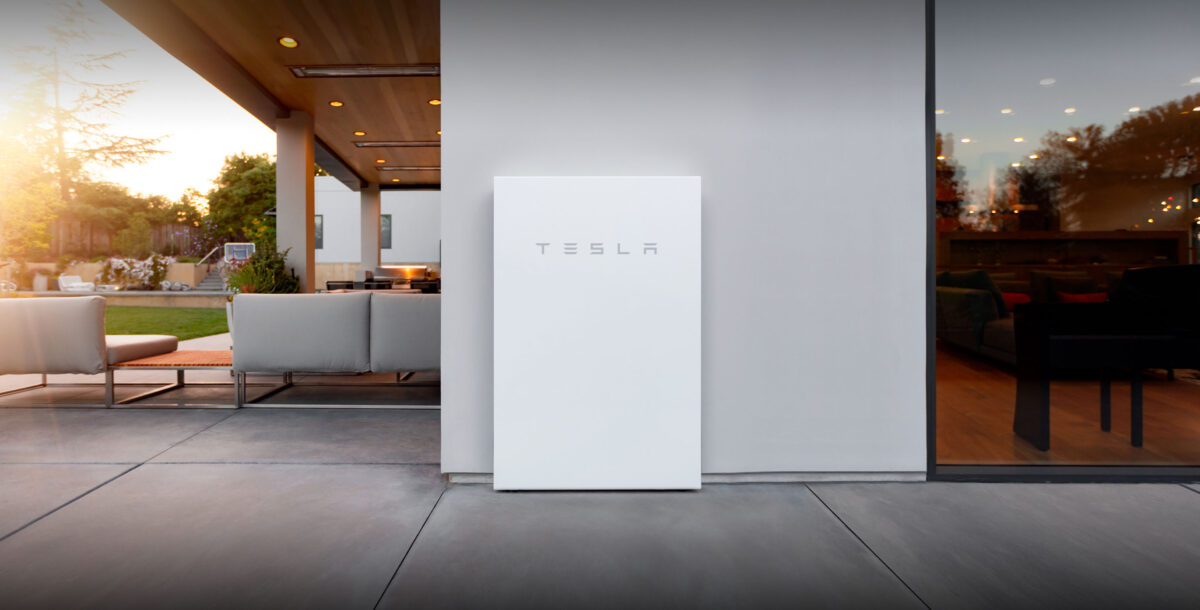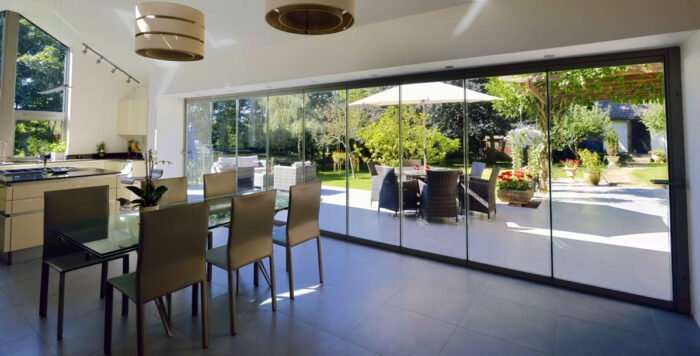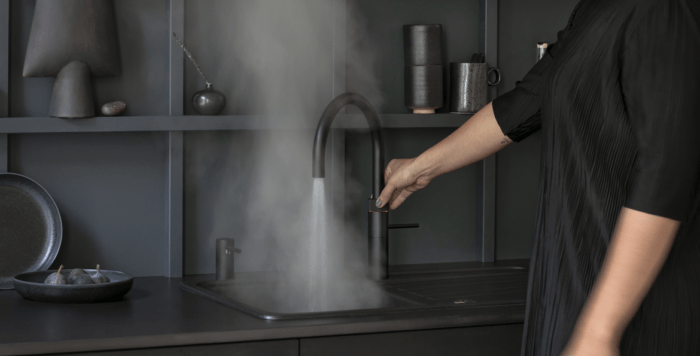Should you get a water softener?
Hard water can cause a myriad of problems in your home. Here's what you need know if you're thinking of getting a water softener
Given the fact that over 60% of UK households have hard water, and this is water that is measured as having over 200mg of calcium carbonate per litre, a water softener is something you might have thought of installing in your home.
Much of the UK’s bedrock is made up of porous materials like limestone, chalk, flint and sandstone. When rain infiltrates the ground, it dissolves very small amounts of the chemical compounds from these rocks, such as calcium and magnesium, and passes them into the reservoirs and then into our water supply. The South East, especially London, is made up of chalk and limestone and has some of the hardest water in the UK. By contrast, Devon and Cornwall have some of the softest water in the country, as the bedrock is igneous granite.
When hard water is heated, the magnesium and calcium separate and form limescale. To get rid of this limescale, you can invest in a water softener, a filtration system that’s installed in your house and works by removing the heavy minerals, namely calcium, iron and magnesium, that cause hardness in your water. Installing a water softener in your home can seem like the obvious solution, but if that’s the route you want to go down, there’s a lot to consider before you get one.
What are the problems hard water causes?
Hard water and the scaling it causes can wreak havoc in your home in all areas, and left untreated can lead to some costly work being done. A big one is the issue of limescale building up in your pipes. Limescale and clogged pipes reduce water flow meaning high energy bills.
“British Water calculate that just 1/16 of an inch of scale around your boiler’s heating elements can raise your fuel costs by up to 15 percent”.
The scaling can also reduce the efficiency of your appliances and they’ll need replacing much more frequently than appliances in soft water areas. Homewater101 report that in high hard water areas you can lose “30 to 50 percent of an appliance’s projected lifespan”. Clogged pipes can also cause corrosion and leaks over time. Even the smallest leak can add hundreds of pounds to your water bill and eventually your pipework will need replacing.
Cleaning is regularly an issue in homes with hard water. Mineral build up can leave a white film around kitchen and bathroom faucets which is stubborn to get out. Iron in hard water can cause rusting in your bathtub, sink and toilet bowl and reduced water pressure can mean the toilet flushes slowly and weakly. Soap scum is often left on glassware when washing up in a hard water area.
Additionaly, hard water is not great for your hair and skin. The minerals in hard water can make it difficult to make a good lather with your shampoo and hard water can dry your skin and cause eczema.
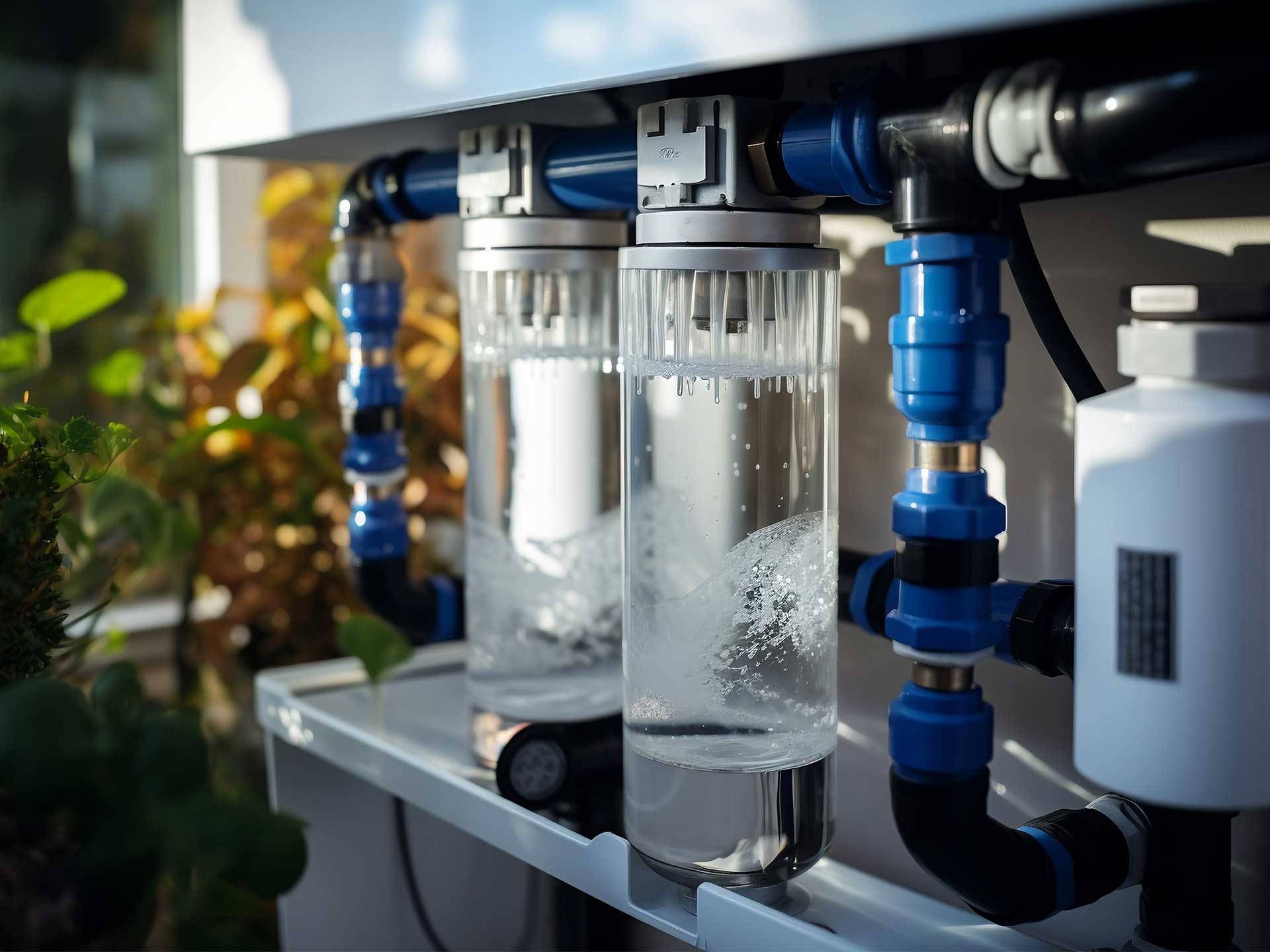
What are the different types of water softeners?
The only real way of eliminating the problems caused by hard water is by installing a whole-house system water softener. While there are several different types of water softener, and they all work slightly differently, the most common has an ion exchange that removes the hard ions (calcium and magnesium) and replaces them with non-hardness ions like sodium.
Choosing the right water softener for your home is important. Firstly, you’ll need to think about how many people are in your home and the amount of water you use. Measure up how much space you have to install one and think about how you’ll access it, as it needs regular maintenance. These are some of the main types of water softener to consider:
Salt-based water softener
A salt-based water softener has an ion exchange that works by drawing the calcium and magnesium minerals (which are positively charged) in your water into polystyrene-type gel resin beads (which are negatively charged) within the water softener. The resin will attract the calcium and magnesium ions and exchange them for sodium ions, resulting in soft water.
This type of water softener does need regular maintenance, as you’ll need to be vigilant that the salt is topped up in the system’s brine tank and that the resin beads are regularly changed. A salt-based water softener does add small amounts of salt to your water, so think about buying a water filter for drinking water. You’ll also need to think about your garden. Water with a slightly higher salt content can interfere with the PH balance of your plants and soil, so it’s advisable to get a water butt and collect fresh rainwater to water your garden.
Salt-free water softener
With a salt-free water softener, the typical chemical ion exchange process doesn’t happen. Instead, it conditions the water by crystallising the calcium and magnesium ions in the water on polymer beads instead of removing them. This process is also known as TAC (Template Assisted Crystallization). So, the term water softener is not technically true; it acts as a water conditioner instead. The hard minerals are still in your water, but their chemical makeup has changed, so they won’t scale your pipes.
The biggest pro is that you’re not adding salt to your water. There’s no mineral buildup and they’ll require less maintenance than a salt-based water softener. However, they are often more expensive and unsuitable for households that have high water usage.
Dual tank water softener
All water softeners need time to regenerate, and while it’s regenerating, essentially, the whole system shuts down. Dual tanks mean that while one tank is regenerating, the other can be in use. This means you can get soft water 24-hours a day and it’s especially good for large families and homes that use a lot of water. Dual tank water softeners also have a better ability to filter really hard water, they’re usually a salt-based water softener and have two resin tanks.
The downsides of a twin tank are that they take up a lot of space and come with a higher price tag than their single tank counterparts. The resin in them also needs to be changed more frequently.
Magnetic water softener
Like the salt-free water softener, a magnetic water softener doesn’t remove the calcium and magnesium in the water, but it uses electromagnetic coils to seperate them. The process neutralises the minerals, removing the negative and positive charges, so the minerals don’t bind to each other and cause scaling.
Magnetic water softeners are a cheaper option and can be plug-in, so no costly installation process and can be moved to a new house. However, as the water must come into contact with the magnets for the process to work they’re not as effective as an ion exchange system. While they will reduce scaling in your pipework, they won’t help in places like your hot water heater, where the water can sit for longer than 48 hours.
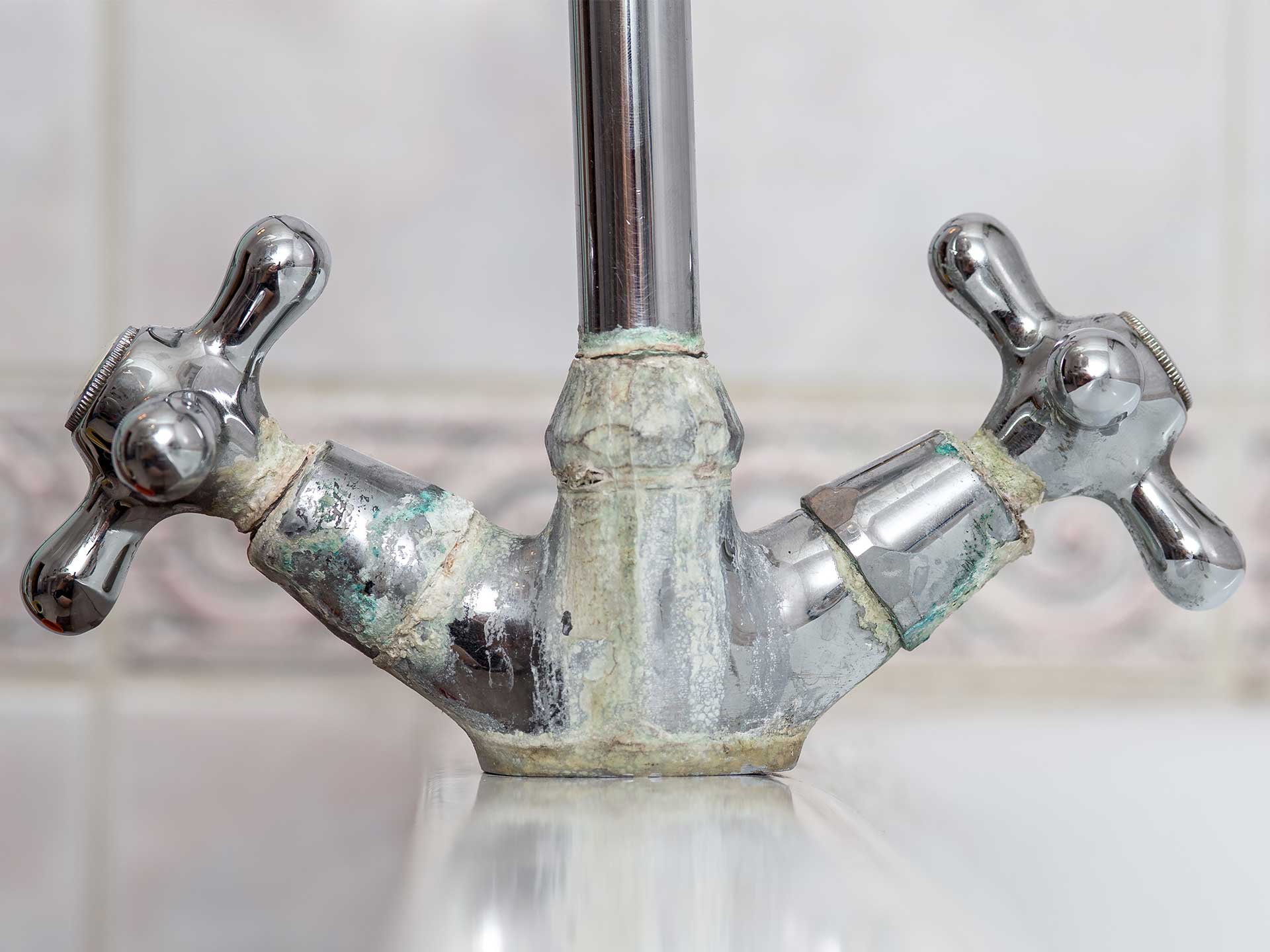
How do you determine the water softness in your area?
The hardness or softness of water can be measured in grains per gallon (gpg), parts per million (ppm), or milligrams per liter (mg/L). Omnicalculator has a calculator to get an accurate figure, which is to “multiply the calcium ion concentration by 2.497. Multiply the magnesium ion concentration by 4.118 and add the two numbers to obtain the water hardness in mg-CaCo₃/L”. Calcium carbonate (CaCO3) is made up of carbon, oxygen, and calcium and found in rocks like limestone.
To quickly check if you live in a hard water area put your postcode into the Aqua Cure map. You can also check with your water company directly. You can buy a cheap test strip to determine which range you sit within. Just fill a glass of water and dip the test strip into it for a few seconds.
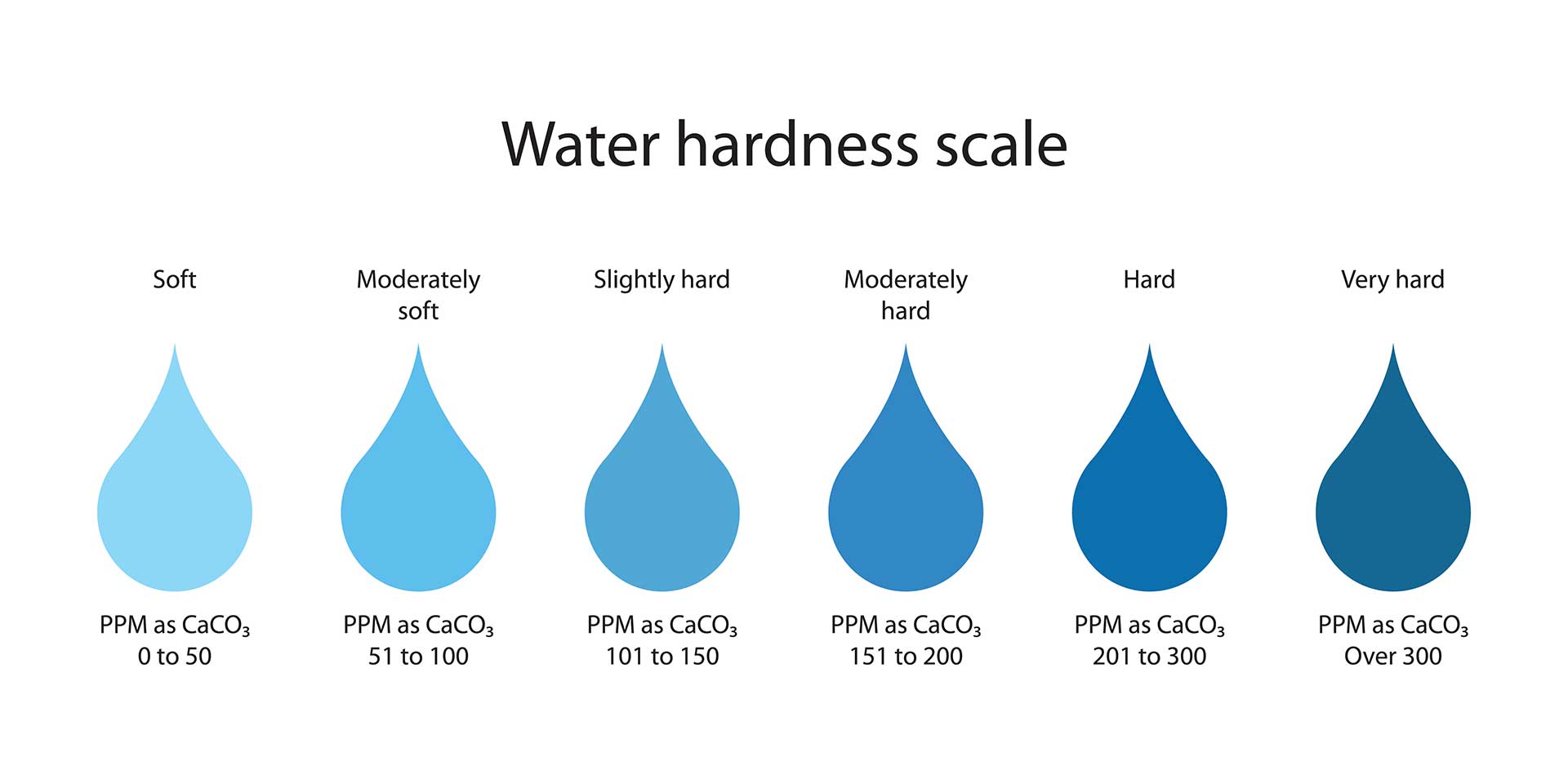
Alternative options
While installing a full water softener infiltration system in your home is the only way to eliminate hard water and scaling, there are smaller steps you can take on a more immediate basis to negate some of the problems.
Firstly, a shower head water softener is easy to install, typically you can just replace your existing shower head and screw it on. They start at very affordable prices from around £12 on Amazon. Of course, better quality shower heads will produce better results. Try an ion-exchange shower head filter like Hello Klean or one that creates an electro-chemical catalytic reaction within the shower, like these from Eco Camel, to make your water softer.
While hard water is usually fine to drink it doesn’t always taste great, so it’s advisable to buy a water filter system, for cleaner, fresher drinking water.
Regularly clean your washing machine with limescale remover and use either water softener tablets or an anti-limescale magno ball. You can also buy rinse aids for dishwashers so you’re not left with spots on your glasses that can occur in hard water areas. And if the limescale appears to be escalating in your home, call in the professionals to remove the build-up from your pipes.
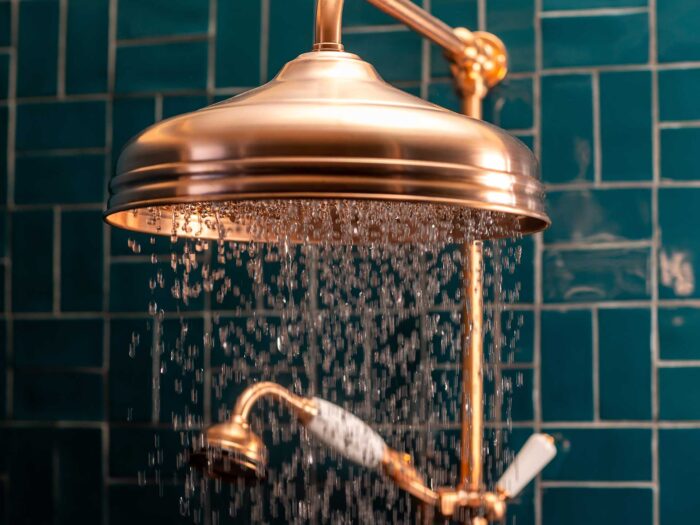
Image credit: Matki


